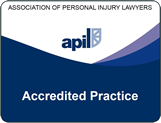Nowadays, it is a challenge to find anyone who doesn’t have or has never had a social media profile. Social media has become an integral part of society and there is a platform for everyone. Whether it be Facebook, Twitter, Instagram, TikTok or LinkedIn, every day millions of people across the globe log in to their profiles to provide updates on what they doing with their lives. But, while social media is a brilliant tool to connect people, it can also be detrimental when it comes to personal injury claims.
Evidence is probably the most crucial thing when it comes to personal injury claims. The evidence presented by both the claimant and defendant often determines the outcome of a case. What most people do not realise, is that social media profiles can be a goldmine of information for defence lawyers and insurance companies. Any accessible information that could prove or disprove liability in a personal injury case, can and will be used against you.
It is therefore important to understand how social media profiles can be used as evidence within personal injury cases and how to take the necessary steps toward protecting yourself and your claim.
What is a personal injury claim?
Personal injury claims are legal cases which are filed by individuals who have suffered an injury or been harmed due to the negligence of another party. These injuries can be both physical or psychological and are often brought on by a traumatic event or accident such as a road traffic collision, an accident at work, falling in public or medical negligence.
Personal injuries vary depending on the circumstances, however some of the most common include fractures, lacerations, burns, amputation of limbs and PTSD.
In order for your personal injury claim to be successful, you must be able to prove that the third party accused of causing your injuries was negligent towards you or acted intentionally. If you suffered any damages as a result of your accident, such as a loss of earnings, this will need to be shown also.
How can social media profiles be used as evidence?
Social media profiles are a treasure trove of information, particularly the profiles of those who are very active online and upload regular statuses, photos and videos of themselves. This content can be used as evidence by insurance companies or defence lawyers to suggest that the claimant has exaggerated their injuries, or been engaging in activity they claim they are unable to do.
For example, if a claimant were to say that they could not walk as a direct result of their injuries, but their social media profile shows recent video footage of them hiking up a mountain, this could be used as evidence by the defence to discredit their claims.
Social media posts may also demonstrate decisions the claimant made in the lead up to an accident which would prove that they were in fact partially or fully liable for their injuries. For example, if an individual were to have posted a status about how drunk they were a couple of hours prior to being involved in a road traffic accident, this may place them at fault.
Protecting yourself and your claim
Considering that social media could have a potential impact on your personal injury claim, here are a few ways you can protect yourself and your claim:
Think before you post: when uploading photos, videos or statuses to your profile, think about how it could be perceived by your peers. Does the content of your post suggest you may be more physically or psychologically able than you actually are? Could your post be misconstrued in any way – for example was the footage captured prior to your accident and does that need to be explained within the caption? If this is unclear, the content could be used against you.
Set your social media profiles to private: tightening up your profile security can help to limit the amount of information available to the public. Doing so will restrict insurance companies and defence lawyers from viewing your profile and allow you to connect with your friends and family without concern. It is also important that you do not accept friend requests from people you do not know, as these may be fake accounts created by the defendant, or someone within their circle, trying to gain access to your information.
Be honest with your solicitor: the most fundamental rule of any personal injury claim is that you are truthful regarding any information surrounding your accident circumstances and injuries. If you are found to be lying, your solicitor will be forced to drop your claim and you will have to pay legal costs as a result. It is also possible that you may face criminal charges.
It goes without saying that the less time you spend on your social media profiles throughout the duration of your claim, the less likely you will be asked to justify the content you share. If you are ever unsure about what you should or should not be uploading, you can discuss this with your personal injury solicitor who will be able to put your mind at rest.
How Stonehewer Moss can help you
At Stonehewer Moss, we have a team of proficient solicitors who have received recognition from the Association of Personal Injury Lawyers (APIL). Our solicitors are devoted to ensuring that you receive the maximum compensation that you are entitled to. We offer a complimentary, no-obligation consultation, and impartial legal representation based on a No Win, No Fee principle, providing you with complete peace of mind. Our goal is to make your legal journey stress-free while achieving the best possible results for you.
For further information on No Win No Fee agreements, watch this short video to learn more.
Talk to one of our personal injury claims specialists
Call us on freephone 0800 434 6544 or 01606 87 22 00


